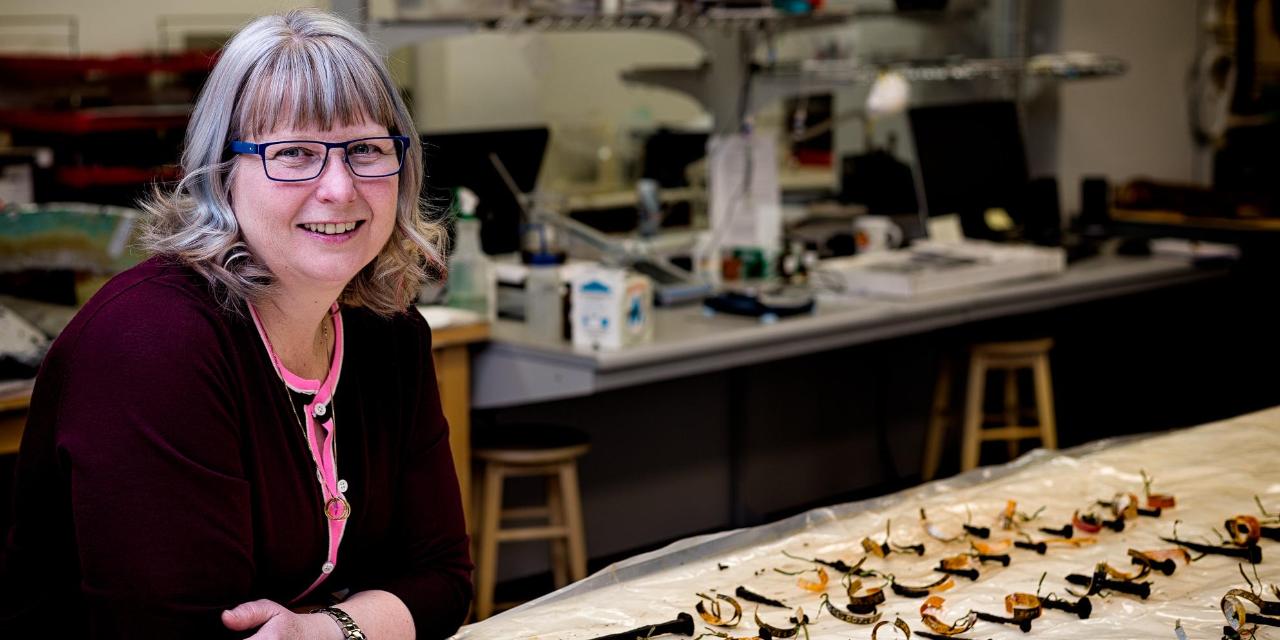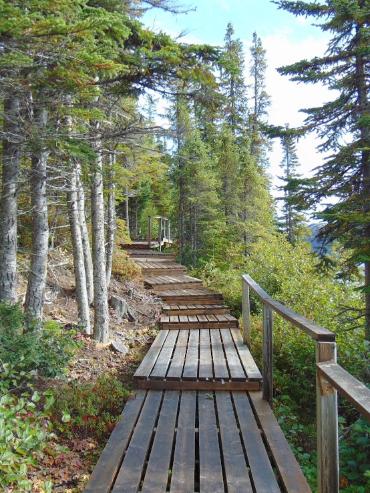The past is present
There’s a boardwalk in Labrador that stretches for over eight kilometres along a scenic coastline and through the forest from the town of Rigolet to Double Mer Point.
The boardwalk ends where the past meets the present. There's an excavation site where three late 18th-century Inuit homes have been uncovered at Double Mer Point.
Archaeological evidence reveals much about the life of the Inuit community who lived there. They hunted. They fished. They created intricate art. And they engaged in a global trade network.
The site provides insight into the ways Inuit culture has adapted to changes of world-altering proportions. It reminds us of a deep and ongoing relationship between a people and a place.
When the people of Rigolet envisioned Double Mer Point as a location where people could connect with their history, they contacted Dr. Lisa Rankin of Memorial University to lead the archaeological excavations. And the Nunatsiavut Government joined as a research and funding partner.
Young people and members of the heritage society from Rigolet helped Dr. Rankin’s team excavate the site. Lab space was set up at the Netloft Museum in town where items from the excavation could be cleaned and catalogued.
The doors to the museum remained open as the work progressed. People from the community could visit at any time or even spend the day and watch as their history came to life.
This is the kind of academic rigour and public engagement that defines Dr. Rankin’s career. She works with and within communities. She’s guided by the quest for knowledge that defines scholarship and by the needs and aspirations of communities.
Dr. Rankin’s academic life has focused on anthropology and archaeology. She earned her undergraduate degree from the University of British Columbia in 1991 and her master’s from Trent in 1994. She completed her doctorate at McMaster in 1998.
She made her first trip to our province during the final year of her undergraduate degree when she attended a conference at Memorial.
Nine years later, in 2000, she joined Memorial’s Department of Archaeology and focused her research on Labrador.
Her work investigates historical and cultural transformations that have occurred in Labrador over hundreds of years, examining how global economic and social networks influenced local practices.
In 2017, she was appointed the Memorial University Research Chair in Northern Indigenous Community Archaeology.

Dr. Lisa Rankin in her lab at Queen’s College on the St. John’s campus in 2019. Photo by Rich Blenkinsopp from the Gazette.
Dr. Rankin's commitment to community-based research led to her involvement in projects like Understanding the Past to Build the Future, a five-year multidisciplinary study conducted in collaboration with the NunatuKavut Community Council.
She took over the lead role with the Tradition and Transition Among the Labrador Inuit project in 2018, a multi-year partnership between Memorial University and the Nunatsiavut Government. The partnership was built to strengthen traditional Inuit knowledge and research being done in Nunatsiavut as a means of ensuring the vitality of Labrador Inuit culture.
This partnership helped expand Dr. Rankin’s explorations.
In 2019, she led excavations in Hopedale, which was once the site of a major Inuit settlement called Agvituk, a large whaling station and centre for coastal trade. Her team, which included a group of young volunteers from the community, started digging in Hopedale for signs of Agvituk.
While there was little left of Agvituk to excavate, the project evolved into a knowledge exchange between the young students and the Elders of the community. The students interviewed Elders about the traditions related to the archaeological finds. They filmed the interviews and created a series of short movies, which they shared on YouTube.
The archaeological work brought the past into the present and sparked a lasting connection between generations.
Dr. Rankin has won numerous awards for both her scholarship and her commitment to students and communities, and her collaborative work has left a tangible impression.
In 2016, she was awarded the Geoffrey Marshall Mentoring Award, from the Northeastern Association of Graduate Schools, and Memorial’s President’s Award for Public Engagement Partnerships, an award she shared with the community of Rigolet.
She was named a fellow of the Royal Canadian Geographical Society in 2021. The Canadian Archaeological Association presented her with the Smith-Wintemberg Award for Outstanding Contributions to Canadian Archaeology in 2024.
In that same year, she was named a fellow of the Royal Society of Canada.
Indigenous knowledge has been shared across generations. Material culture has been nurtured and protected. Academic and Indigenous ways of knowing have found common ground.
She has helped open a respectful dialogue between communities. But also a dialogue with history, where stories from the past strengthen voices in the present.
